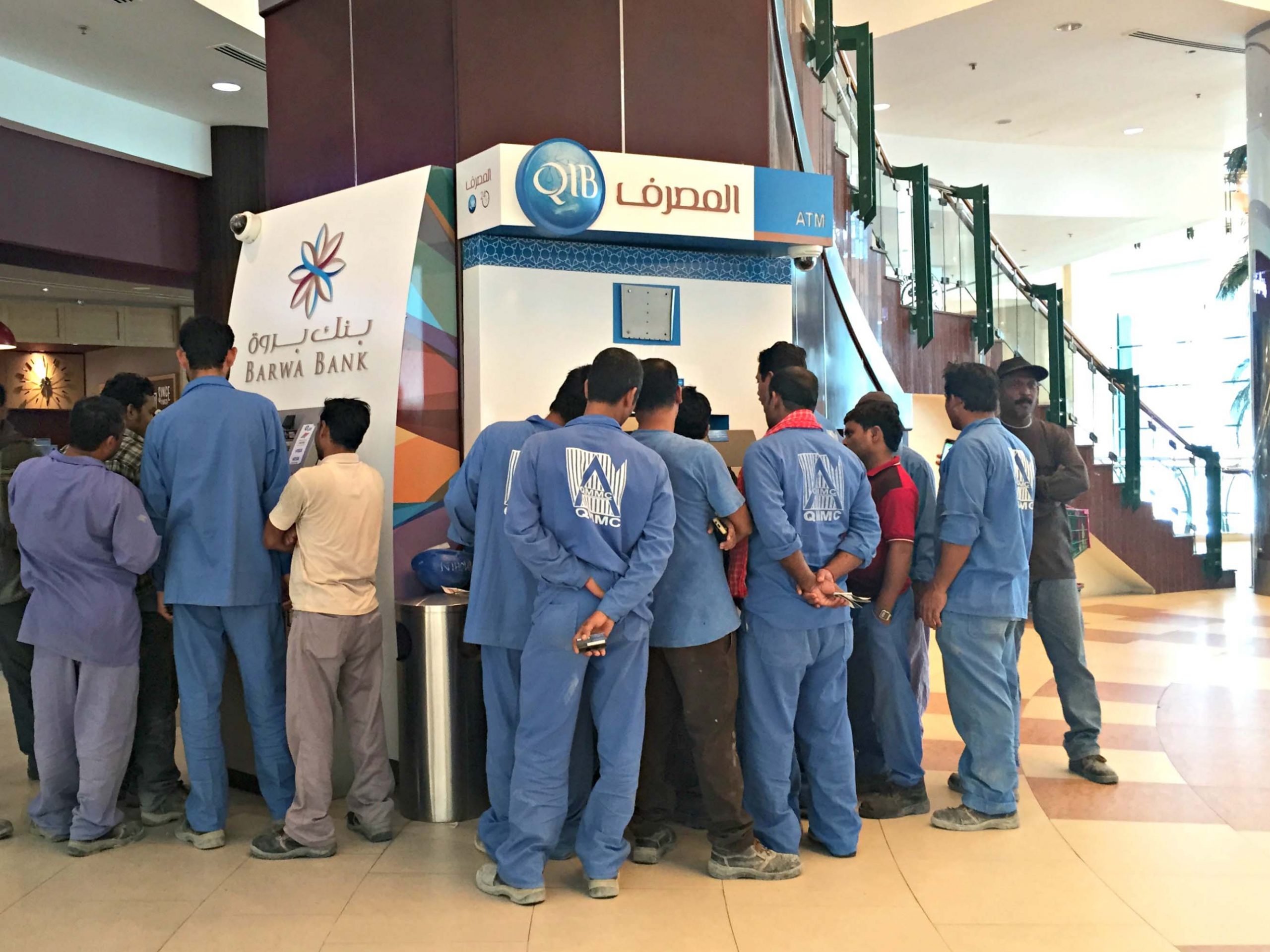
It’s been a month since Qatar began requiring companies to pay their employees through an electronic bank transfer.
Known formally as the country’s wage protection system, the measure is intended to make it easier for expats and the government to scrutinize and document any late or non-existing payments, one of the biggest complaints among blue-collar workers here.
Indeed, this week marked the first time many laborers received their salaries without delay, and not in cash, a move rights groups have applauded.
But what do those directly affected by the new system think of it?
On Tuesday – the first day of December – a crowd of men were waiting to access their money via an ATM near an Al Meera store in Najma. Doha News asked them for their thoughts.
Wariness
Because many workers have never used an ATM before, some treated it warily.
Sajid Khan for example said he was suspicious of banks and after a friend showed him how to use the machine, he drained his account.

Speaking to Doha News, he said that the bank would be unable to steal from him if he immediately withdrew his salary.
Meanwhile, several others lined up at the ATM simply to see if money had been deposited in their accounts.
This included Jangan Sharma and three of his colleagues, who left empty handed after checking their balances. However, Sharma said he was hopeful that he would be paid later in the day.
Others, such as Aftab Ali, said they received their full salary. This was welcome news for Ali, who said he came to Qatar from Bangladesh five years ago to work as an air conditioning technician.
The expat added that he was promised a monthly salary of approximately QR4,500, but his pay turned out to be half that. Additionally, Ali said the amount he is paid has fluctuated from month to month and that he didn’t always receive his salary on time.
This made it hard to pay rent on time, or send money back home, he said. However, this time he received his salary on Dec. 1 and he said he hopes he’ll continue to be paid in full on the first day of each month.
Hiccups
Even though employers and government officials had nine months to prepare for the WPS after the measure was officially signed into law, there have been stumbling blocks to implementing the system.

This includes long lineups outside some bank branches last month as expats, who required specific paperwork from their employers, waited to open new accounts.
Tanvir Hussein, one of the men using the Najma ATM this week, said the requirement cost him a day’s pay because he was forced to miss work while waiting outside a bank branch.
Other residents said that WPS prevented their employers from paying them on time last month.
This appeared to happen to several hundred expats working for Drake & Scull at the Msheireb Downtown Doha construction site, went on strike recently after not being paid.
The wage protection system has been welcomed by human rights and labor activists including Amnesty International, which pointed to the measure in a report this week as a sign that Qatar is making progress in tackling the problem of late and unpaid wages.

But there are still questions about how authorities will enforce the new measures.
For example, it’s unclear if the government will launch it own investigation if it detects that salaries are not being deposited, or if officials will only respond to complaints.
If it’s the latter, WPS may not make much of a difference, as some expats such as Ali would not lodge a complaint for fear of being fired.
Other men at the ATM who declined to give their names said they thought the measure was introduced to placate Qatar’s critics, but believed it would not actually change anything for expats working in Qatar.
How has the wage protection system affected you? Thoughts?







